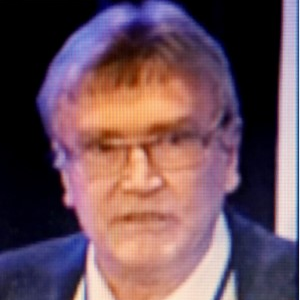New Insights into the Management of Advanced (Stage D) Heart Failure
A special issue of Journal of Clinical Medicine (ISSN 2077-0383). This special issue belongs to the section "Cardiology".
Deadline for manuscript submissions: closed (20 April 2024) | Viewed by 1501
Special Issue Editor
Interests: ventricular function; heart failure; mechanical circulatory support; heart transplantation; echocardiography; cardiac physiology; cardiac immunology; right ventricle; pulmonary hypertension
Special Issue Information
Dear Colleagues,
The management of advanced heart failure (HF) refractory to pharmacological therapy and cardiac rhythm control (HF stage D) is highly challenging, necessitating particularly demanding treatment strategies such as mechanical circulatory support (MCS) or heart transplantation (HTx). Thanks to the continuous evolution of MCS technology, the growing knowledge around patient management, and the increasingly better understanding of device-related adverse events, the outcomes with newer, durable left ventricular assist devices (LVADs) in the early years after implantation have approached that of HTx. Despite its known limitations, HTx still remains the most optimal therapy for irreversible advanced chronic HF. Nevertheless, due to the shortage of donor hearts, HTx cannot keep pace with the rising demand for life-saving circulatory support, and therefore, only the alternative to implant a LVAD (± additional right ventricular temporary support) or a durable bi-ventricular assist device can improve patient outcomes.
The purpose of this Special Issue is to provide additional findings regarding the management of life-threatening end-stage HF with the aim to enhance the theoretical and practical knowledge of those engaged in this particularly demanding and still highly topical field of cardiovascular medicine.
The topics expected to be addressed by the authors should, therefore, be linked to MCS therapy and/or HTx in patients with advanced HF of different etiologies (e.g., pathophysiological aspects, diagnostic challenges, surgical procedures, risks and complications, perioperative management, long-term surveillance and outcomes, etc.).
Dr. Michael Dandel
Guest Editor
Manuscript Submission Information
Manuscripts should be submitted online at www.mdpi.com by registering and logging in to this website. Once you are registered, click here to go to the submission form. Manuscripts can be submitted until the deadline. All submissions that pass pre-check are peer-reviewed. Accepted papers will be published continuously in the journal (as soon as accepted) and will be listed together on the special issue website. Research articles, review articles as well as short communications are invited. For planned papers, a title and short abstract (about 100 words) can be sent to the Editorial Office for announcement on this website.
Submitted manuscripts should not have been published previously, nor be under consideration for publication elsewhere (except conference proceedings papers). All manuscripts are thoroughly refereed through a single-blind peer-review process. A guide for authors and other relevant information for submission of manuscripts is available on the Instructions for Authors page. Journal of Clinical Medicine is an international peer-reviewed open access semimonthly journal published by MDPI.
Please visit the Instructions for Authors page before submitting a manuscript. The Article Processing Charge (APC) for publication in this open access journal is 2600 CHF (Swiss Francs). Submitted papers should be well formatted and use good English. Authors may use MDPI's English editing service prior to publication or during author revisions.
Keywords
- advanced heart failure
- mechanical circulatory support
- ventricular assist devices
- bridge-to-transplantation
- destination therapy
- unloading-promoted cardiac remission/recovery
- heart transplantation
- immunosuppression
- acute rejection
- cardiac allograft vasculopathy






